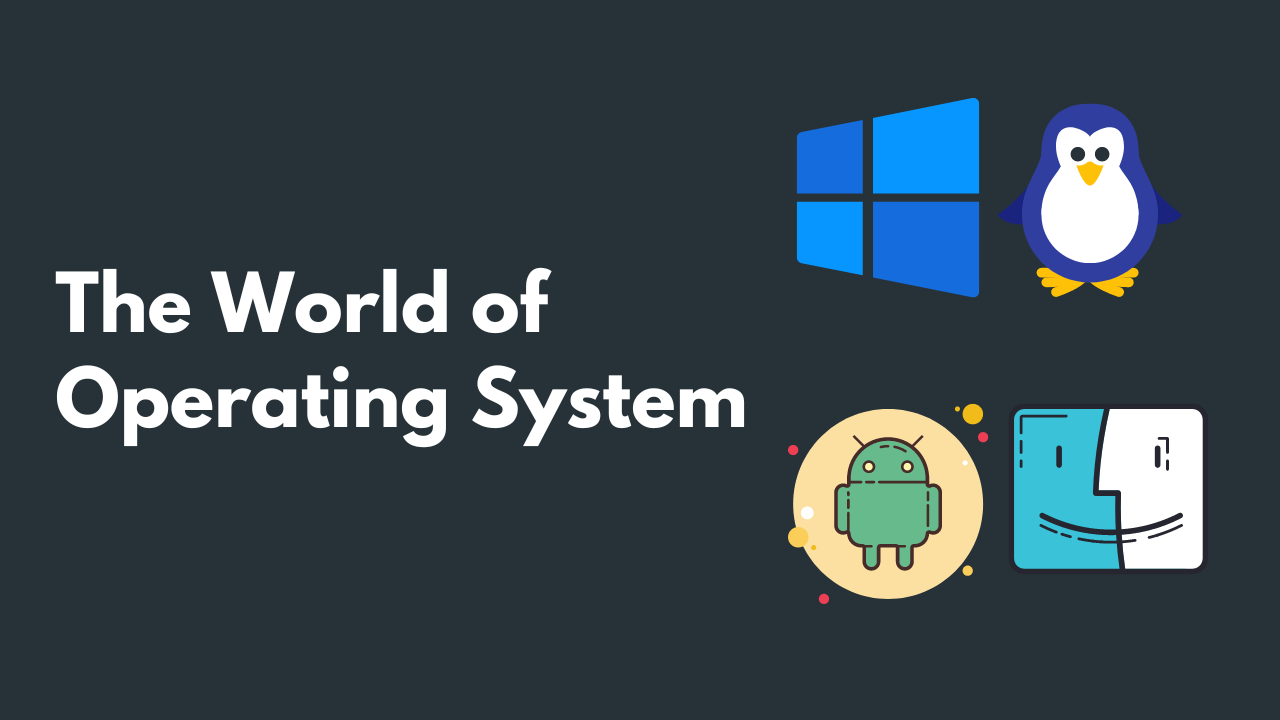I was at work and I was doing my work, which was developing applications and making sure that the code that I was writing worked, and I was using Linux to do all my work. In Linux, I use a terminal to write my blogs and code my applications, and when my coworker saw me using a terminal and asked me what was on my screen, I told him it was my terminal that I was using to do my work. He was shocked, so at that time, normal people didn’t know what an operating system was, so that’s the topic for today: what is an operating system? Soon, you will know everything there is to know about operating systems.
What is an Operating System?
An operating system (OS) is a software program that manages computer hardware and software resources and provides services to computer programs. It acts as an intermediary between computer applications and the computer hardware, providing an interface for software to interact with the hardware. The operating system controls the allocation of resources such as memory, processing power, and storage, and ensures that these resources are used efficiently and effectively. In this blog, we will explore the basics of operating systems and their importance in the modern computing world.
Types of Operating Systems:
There are several types of operating systems, each with its own strengths and weaknesses. The three most common types of operating systems are:
-
Desktop Operating Systems: These operating systems are designed for personal computers and are used by individuals for their day-to-day computing needs. Examples of desktop operating systems include Microsoft Windows, macOS, and Linux.
-
Mobile Operating Systems: These operating systems are designed for mobile devices such as smartphones and tablets. Examples of mobile operating systems include Android and iOS.
-
Server Operating Systems: These operating systems are designed to manage and operate servers, which are used to store and manage data and run applications for large organizations. Examples of server operating systems include Windows Server and Linux Server.
Components of an Operating System:
An operating system consists of several components, including:
- Kernel: The kernel is the core component of the operating system and manages the system’s resources, including memory, processing power, and storage.
- User Interface: The user interface is the part of the operating system that allows users to interact with the computer. The user interface can take different forms, including a command-line interface, a graphical user interface (GUI), or a touch-based interface.
- Device Drivers: Device drivers are software programs that allow the operating system to communicate with hardware devices such as printers, scanners, and cameras.
- System Libraries: System libraries are collections of software programs that provide commonly used functionality, such as input/output (I/O) operations, networking, and file management.
- Utility Programs: Utility programs are software programs that perform specific tasks, such as disk cleanup, antivirus scanning, and system maintenance.
Importance of Operating Systems:
Operating systems are an essential part of modern computing. They provide a platform for software developers to create and distribute their applications, and they ensure that the computer’s hardware is used efficiently and effectively. Without an operating system, users would need to interact with the hardware directly, which would be cumbersome and time-consuming.
Operating systems also provide a layer of security, protecting users from malware and other security threats. They allow for multiple users to share a single computer, and they enable networking, which allows users to share resources and communicate with other computers.
Conclusion:
Operating systems are an essential part of modern computing, providing a platform for software development, managing computer resources, and providing security and networking capabilities. There are several types of operating systems, each with its own strengths and weaknesses. Understanding operating systems and their components is essential for anyone who wants to work with computers, whether as a user or a developer.
I hope with this blog you will understand what an OS is, and with that, we will see you next time. ❤️
Credit:
This article was written by Abdul Rafay and published on Future Insight.
Contact Us:
If you have any questions, please contact
Future Insight:
Author:
Abdul Rafay:
Thumbnail:
